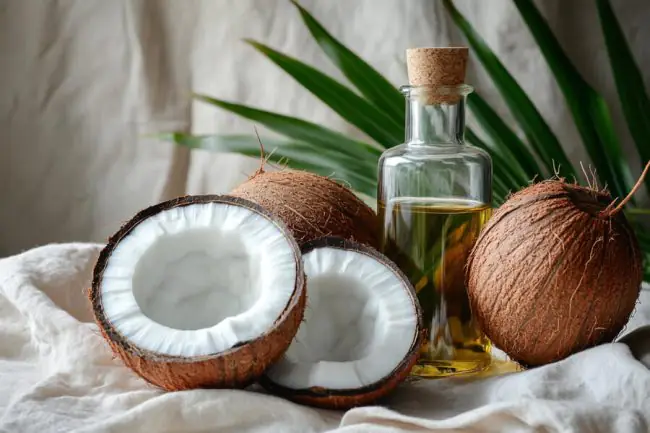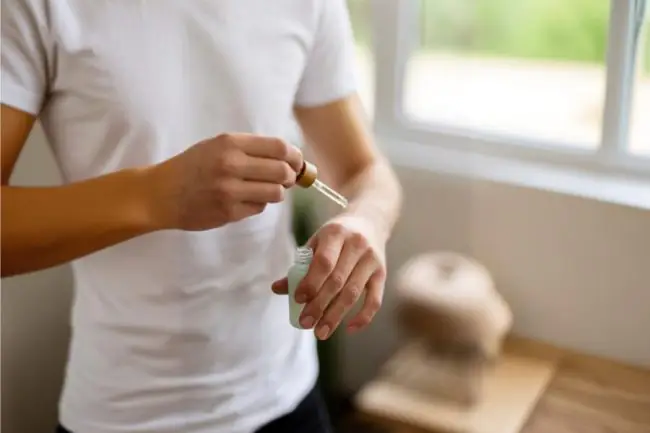Switching to a natural deodorant is becoming a popular choice for those who want to avoid chemicals and harsh ingredients in their skincare routine. Not only is it better for your skin, but it’s also more eco-friendly!
If you’re curious about making your own natural deodorant, here are some steps, that offer easy-to-follow recipes, and help you understand why natural ingredients are the way to go to prepare your own natural deodorant at home.
Why Choose a Natural Deodorant?
Traditional deodorants often contain aluminum, parabens, and synthetic fragrances. These chemicals can block sweat glands, irritate your skin, or even cause allergic reactions.
On the other hand, they work with your body’s natural processes to prevent odor without harmful side effects. The best part? You can make it at home with a few simple ingredients!
So, what should you do?
Making your own natural deodorant ensures you know exactly what’s going on in your skin. Plus, it’s easy, affordable, and customizable to your preferences.
How to Make Natural Homemade Deodorant
To create natural homemade deodorant, you only need a few key ingredients, most of which you probably already have at home.
The basic formula involves a blend of oils, powders, and essential oils. The result? A safe, effective deodorant that smells fantastic.
Essential Oils for Natural Deodorant:
Essential oils are the secret weapon in a natural deodorant recipe. Not only do they provide pleasant scents, but they also have antibacterial properties.
Popular choices include lavender, tea tree, and peppermint oils, all of which help fight odor-causing bacteria.
How Do You Make a 3-ingredient Deodorant?
If you’re looking for simplicity, this 3-ingredient recipe is an excellent place to start. It’s quick, easy, and requires minimal effort.
Basic Recipes:
- 3 tablespoons of coconut oil
- 2 tablespoons of baking soda
- 2 tablespoons of cornstarch or arrowroot powder
These ingredients work together to absorb moisture and neutralize odors, making these basic recipes both effective and gentle on the skin.
Coconut Oil Homemade Deodorant Recipe
Coconut oil is a superstar in many natural deodorants due to its antibacterial and moisturizing properties. Here’s how to make a deodorant that adds this wonder ingredient:
Ingredients:
- 3 tablespoons of coconut oil
- 2 tablespoons of baking soda
- 2 tablespoons of arrowroot powder
- 5-10 drops of essential oils (such as lavender or tea tree)
Instructions:
- Mix baking soda and arrowroot powder in a bowl.
- Melt the coconut oil and add it to the dry mixture.
- Stir in your preferred essential oils.
- Transfer the mixture to a jar or container, and your natural deodorant is ready!
Step-by-Step Preparation for Homemade Liquid Deodorant
If you prefer a liquid deodorant, don’t worry it’s just as easy to make!
- Melt coconut oil over low heat and add baking soda and arrowroot powder.
- Add a splash of witch hazel for a liquid consistency.
- Stir in your favorite essential oils.
- Pour into a spray bottle for easy application.
How to Use DIY Natural Deodorant
Using a natural deodorant you’ve made at home is simple. After you’ve showered, apply a small amount to your underarms. Start with a pea-sized amount for a paste, or spray a few pumps if you made a liquid version. Keep your deodorant in a cool place to prevent it from melting (coconut oil tends to soften in warmer temperatures).
What You Need for DIY:
- Coconut oil, baking soda, arrowroot powder (or cornstarch)
- Essential oils for fragrance and antibacterial properties
DIY Recipes Using Common Household Ingredients
- Baking soda and water paste: A quick and easy solution.
- Coconut oil and arrowroot blend: Great for odor control and moisturizing.
Benefits of Homemade Liquid Deodorant Ingredients
The ingredients in your natural homemade deodorant all play a role in keeping you fresh and odor-free. For example:
- Coconut oil: Provides moisture and has natural antibacterial properties.
- Baking soda: Neutralizes odor by balancing pH levels.
- Arrowroot powder: Absorbs moisture to keep you dry.
Why Is My Homemade Deodorant Paste Soft?
If your natural deodorant paste turns out soft, the coconut oil could be the criminal. Coconut oil has a low melting point, so it’s common for deodorants to soften in warm environments.
If this happens, store your deodorant in the fridge or add more arrowroot powder for a firmer consistency.
Want to Try a Ready-Made Natural Deodorant?
If you’re not ready to go into DIY, there are plenty of ready-made natural deodorants available. Many brands offer options that are free from chemicals and synthetic ingredients. But if you want to experiment at home, try this simple recipe:
Rosemary & Grapefruit Recipe:
- 2 tablespoons coconut oil
- 1 tablespoon shea butter
- 3 tablespoons arrowroot powder
- 5 drops of rosemary essential oil
- 5 drops of grapefruit essential oil
Melt the coconut oil and shea butter, mix in the arrowroot powder, and add your essential oils. You’ll end up with a fresh-smelling, effective natural deodorant.
Natural Deodorants That Didn’t Work (for Me)
Through trial and error, I found that not all natural deodorants are equally effective. Here are a few combinations that didn’t work well for me:
- Crystal Deodorants: Didn’t provide long-lasting odor control.
- Coconut Oil + Baking Soda: While this combination works for many, it was too harsh for my sensitive skin.
- Baking Soda-Free Deodorants: These were gentle but didn’t keep odor at bay.
What Did Work (Kind Of)?
One recipe that worked moderately well was a simple baking soda and water paste. It’s effective but can irritate sensitive skin, so use it sparingly if your skin tends to react to baking soda.
Acids as Deodorants
Acids like apple cider vinegar can also be used in deodorants to neutralize odor. However, they can be a bit harsh, especially on sensitive skin, so it’s essential to dilute them properly before applying.
The Best Natural Deodorant: Zinc!
Zinc is one of the best ingredients you can use in a natural deodorant. Here’s why:
- Zinc Oxide: Known for its antibacterial properties, zinc oxide helps prevent odor.
- Zinc Ricinoleate: This traps and neutralizes odor molecules, making it a popular choice in many natural deodorants.
Baking Soda Deodorant for Slightly Sensitive Skin
If you have slightly sensitive skin but still want to use baking soda, reduce the amount in your natural deodorant recipe and add soothing ingredients like coconut oil or shea butter to prevent irritation.
Conclusion
Making your own natural deodorant is a rewarding process that gives you control over what goes on your skin. With basic ingredients like coconut oil, baking soda, and essential oils, you can craft a personalized natural deodorant that’s just as effective as store-bought options, minus the chemicals. Plus, the customization possibilities are endless, allowing you to experiment until you find the perfect formula.
FAQs
Does homemade natural deodorant need a preservative?
No, unless water is involved, homemade natural deodorants typically don’t require preservative
How much does it cost to make deodorant?
Making your own deodorant is affordable and usually costs less than €5 for a small batch.
What homemade natural deodorant kills bacteria?
Baking soda and essential oils like tea tree and lavender have antibacterial properties that help kill odor-causing bacteria.
What is the active ingredient in natural deodorant?
The most common active ingredients in natural deodorants are baking soda, arrowroot powder, and essential oils.







